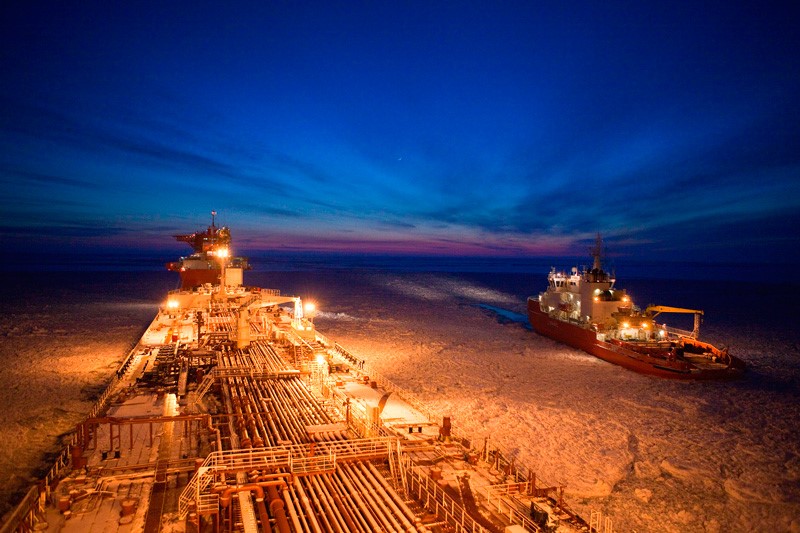RUSSIA MONITOR
Date: 24 October 2019
Lukoil Is Unwilling to Pour Money into Arctic Shelf Projects
The Russian government is open to the idea that private oil and gas firms could be allowed to explore Russia’s Arctic shelf. But these show no particular enthusiasm, and Lukoil said for its part that the current oil prices might make its potential Arctic shelf projects unprofitable. Unlike their state-held peers, private-owned oil and gas firms do not pursue such a shaky and wasteful investment policy. As for Lukoil, it seeks to satisfy its shareholders with a new dividend policy.

Recently Russian Deputy Prime Ministers Dmitry Kozak and Yuri Trutnev met with three ministers to discuss the issue of allowing private companies to launch Arctic projects, proposing to draft legislation to expand access to the area. Yet the concept of giving private energy companies access to the Arctic shelf will not provide incentives for private oil firms to invest in Russia’s Arctic shelf. Speaking at the Russian-Saudi investment forum on the sidelines of Russian President Vladimir Putin’s visit to the Kingdom, Lukoil CEO Vagit Alekperov suggested that Lukoil holds no interest to launch drilling work on the Russian Arctic shelf soon. Alekperov argued that the current oil prices could dwindle the profitability of mining investments on the Arctic shelf. This came as his response to a question of whether Lukoil could start operating in the area if the government gave the green light to explore Russia’s Arctic shelf, where currently only state-held firms have the right to operate. If oil prices attained $80–120 per barrel, Lukoil would be ready to study the possibility to participate in projects on the Arctic shelf. Also, Natural Resources and Ecology Minister Dmitry Kobylkin displayed pessimism about the probable entry of private-held companies into hydrocarbon projects in Russia’s Arctic. “I don’t think these companies could afford to get involved in low-income ventures,” he was quoted as saying. Instead, the minister believes that it is better to concentrate on carrying out work in traditional hydrocarbon drilling sites, like Western Siberia, where resources are harder to be unearthed.
Support Us
If content prepared by Warsaw Institute team is useful for you, please support our actions. Donations from private persons are necessary for the continuation of our mission.
On October 16, the Board of Directors of Lukoil approved the new principles of the company’s dividend policy. Under the document, from now on, 100 percent of adjusted free cash flow (FCF) will be distributed to dividends, excluding the company’s own shares. The adjusted free cash flow will be fixed on the basis of Lukoil’s financial statements prepared under International Financial Reporting Standards (IFRS). It will be determined as net cash provided by operating activities minus capital expenditures, interest paid, or repayment of lease obligations. Dividends are paid twice a year and will be calculated based on the financial statements for both the six-month and full-year periods. Lukoil’s fresh dividends policy led to an immediate hike in the major’s stakes by 3.17 percent on the Moscow stock exchange. As of 2018, Lukoil distributed less than 30 percent of its net profit, or 161 billion rubles, on repaying dividends in a move that the firm’s management saw as lagging behind other oil companies. Lukoil amended its dividend policy because its previous version did not allow flexible solutions and barred the firm from responding effectively to external challenges, as was the case of Russia’s deal with OPEC+ on reducing oil output.
All texts published by the Warsaw Institute Foundation may be disseminated on the condition that their origin is credited. Images may not be used without permission.














